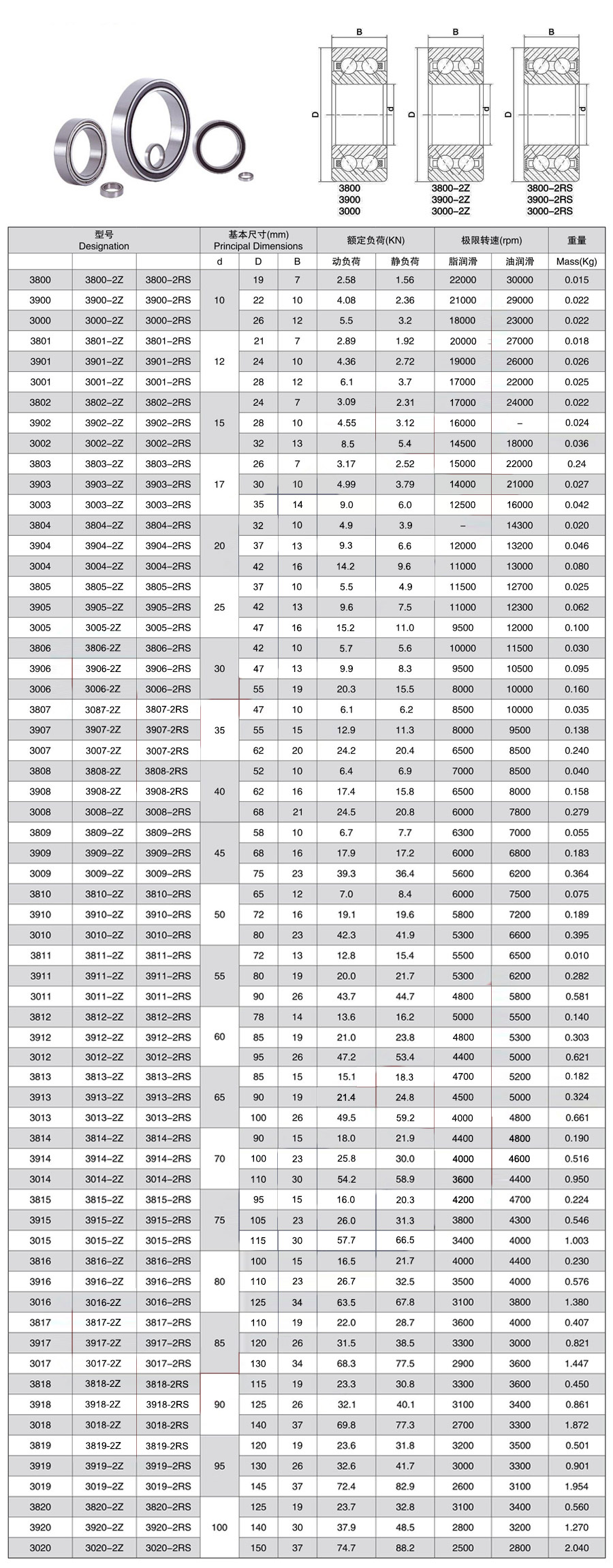
Definition: 30-2 rs series double row angular contact ball bearings can withstand the big radial direction load primarily radial and axial loads and moment loads, mainly used for two-way axial displacement limit shaft and the shell parts.
Application: compared with the single bearing double row angular contact ball bearing has better rigidity, can withstand the overturning moment. Bearing as a separate. Especially suitable for a high rigid requirements. Widely used in the car of the front wheel hub (some models also use the same size of the double row circular cone roller bearings).
Features: double row angular contact ball bearing can be skewed between inner and outer ring is limited, allowing Angle depends on the bearing internal clearance, bearing on the size, in the role of interior design, and the bearing force and moment, and the maximum allowable slope Angle should guarantee won't produce high additional stress in the bearing.
If the Angle between bearing inner and outer ring, will affect the service life of bearing, falling bearing running accuracy at the same time, the running noise increases. Double row angular contact ball bearing usually use nylon cage entity or brass cage. Double row angular contact ball bearing should be paid attention to when installation, although the bearing can be subject to bi-directional load, but if one side has put the ball gap, should be paid attention to, don't let the noise of main axial load through a gap on one side of the river bank. In bearing should be paid attention to when using makes without ball gap on one side of the race carry the main load.
Double row angular contact ball bearings can withstand the bigger radial direction load primarily radial, axial two-way joint load and torque load, it can limit shaft or shell two-way axial displacement, the contact Angle of 30 degrees.
Double row angular contact ball bearing also has the good rigidity, can withstand the overturning moment. Bearing as a separate. Especially suitable for a high rigid requirements. Widely used in the front wheel hub of the car.
